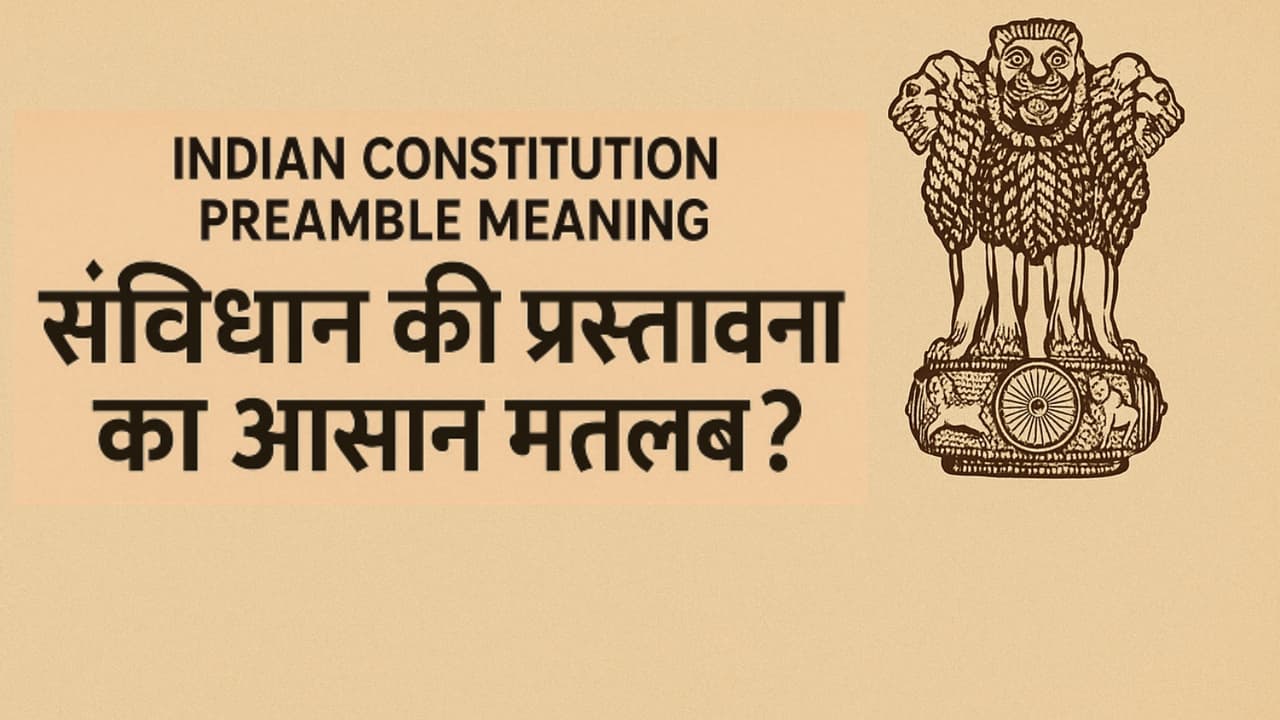Preamble Easy Explanation for Students: Read here what is the meaning of the Preamble of the Constitution of India. Know why it is important for every student to understand the Preamble of the Constitution and what is its importance? It is also important for exam preparation and general knowledge.
Preamble Explained for Students: The Constitution of India is very big, but its soul is written in just a few lines. These lines are called Preamble (Indian Constitution Preamble). Just as the beginning of a book tells what the book is about, similarly the preamble of the Constitution of India tells us what our country will be like, what values we have to adopt and what guarantees are given to the citizens. It is important for any student to understand the Preamble because it is from here that the real meaning of the Constitution begins. Know
Preamble of the Constitution of India
‘We, the people of India, having resolved to constitute India into a sovereign, socialist, secular, democratic Republic, and to secure to all its citizens social, economic and political justice, freedom of thought, expression, belief, religion and worship, equality of status and opportunity, and to promote among them all the fraternity which ensures the dignity of the individual and the unity and integrity of the Nation, have resolved in our Constituent Assembly this 26th day of November, 1949 (Margashirsha Shukla Saptami, Samvat 2006 Vikrami) hereby adopt, enact and dedicate this Constitution.
What does the Preamble of the Constitution say? understand
‘We, the people of India, adopt this Constitution to constitute India a sovereign, socialist, secular, democratic Republic and to guarantee to all its citizens justice, liberty, equality and fraternity.’
- We, the people of India: This means that the real strength of the country is the people. The government is made up of the people. The Constitution was not imposed by anyone from above, rather the people themselves made it together.
- Totally sovereign: Meaning, India is not under the pressure of any foreign country. India takes its own decisions.
- Socialist: Meaning, efforts will be made to reduce the distance between the rich and the poor in the country. Every citizen should get equal opportunities.
- Secular: Meaning, the government does not call any religion its religion. Every religion gets equal respect.
- Democratic: Meaning, the people elect the leaders of the country. Here the government is elected by the people, for the people and by the people.
- Republic: Meaning, our country is not in the hands of any king. The President is elected by elected representatives of the public, i.e. no hereditary monarchy.
- Justice: Three types of justice will be given in the country. Which includes social justice, economic justice, political justice. Equality and fairness will be maintained with every citizen.
- Liberty: Every citizen has freedom to speak, think, believe, worship.
- Equality: Every citizen is equal. There will be no discrimination on the basis of caste, religion, language or gender.
- Fraternity: Meaning, every citizen in the country should respect each other and live together. It enhances the feeling of national unity and brotherhood.
Read this also- Constitution Day Quiz 2025: How much time did it take to make the Constitution? Know top 15 questions and answers
Why is it important for students to understand preamble?
It tells on what ideas the foundation of India has been laid. It is asked in many exams like UPSC, SSC, Railway, NDA, State Exams. It enhances civic sense and it strengthens the understanding of your rights and duties.
Read this also- Constitution Day Speech 2025: 2-minute powerful speech for students-teachers on Constitution Day
